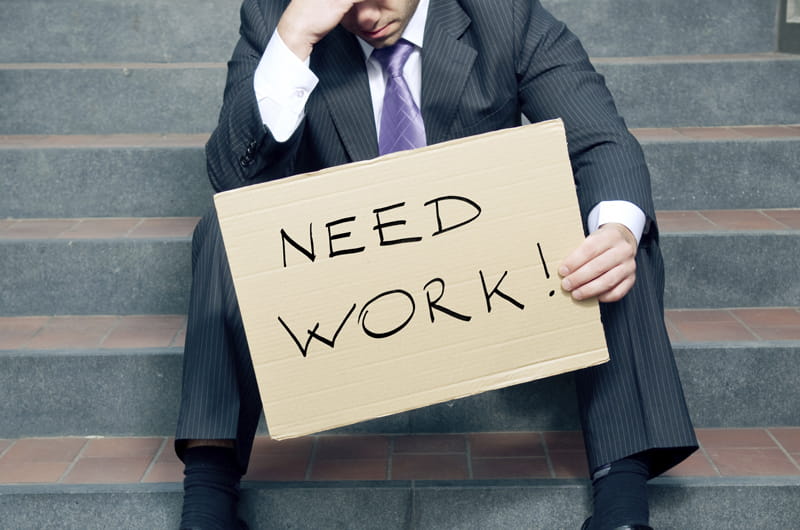How Is It Possible that Joblessness Could Kill You, But Recessions Could Be Good For Your Health?

- Renowned Geneticist Vicki L. Chandler, PhD, to Address Drexel College of Medicine Class of 2024 During Commencement
- New Project Examines Racism and Resilience Among Black Autistic Children and Caregivers
- Fashion Icon Mary McFadden 'The High Priestess of High Fashion' Exhibition Opens at Drexel
- On the Trail of Deepfakes, Drexel Researchers Identify ‘Fingerprints’ of AI-Generated Video

Being unemployed increases your risk of death, but recessions decrease it. Sound paradoxical? Researchers thought so too.
While previous studies of individuals have shown that employees who lose their jobs have a higher mortality rate, more comprehensive studies have shown, unexpectedly, that population mortality actually declines as unemployment rates increase. The research community has often rejected one of these effects because it conflicted with the other, so researchers from Drexel University and the University of Michigan in Ann Arbor set out to better understand these seemingly contradictory findings.
Using a nationally representative panel of individuals across the United States, the researchers studied both processes concurrently, and found for the first time in the same dataset these two facts that had previously been seen as inconsistent. The investigators concluded that the two effects do co-occur and are consistent with studies that examine them separately.
The findings reveal that job loss is associated with a 73 percent increase in the probability of death – the equivalent of adding 10 years to a person’s age. However, this increased risk affects only the minority of people who are unemployed and is outweighed by health-promoting effects of an economic slowdown that affect the entire population, such as a drop in traffic fatalities and reduced atmospheric pollution. The researchers found that each percentage-point increase in the individual’s state unemployment rate reduces the hazard of death by approximately 9 percent, which is about the equivalent of making a person one year younger.
“Most people believe that being unemployed is a bad thing,” said lead author José Tapia, PhD, an economist and population health researcher in Drexel University’s College of Arts and Sciences. “But what many people don’t realize is that economic expansions – which usually reduce joblessness – also have effects that are harmful for society at large.”
Entitled “Individual Joblessness, Contextual Unemployment, and Mortality Risk,” the study was published in July 2014 in the American Journal of Epidemiology, a leading journal in the field of public health. In addition to Tapia, it was conducted by four investigators – sociologist James S. House, PhD; statistician Edward L. Ionides, PhD; sociologist Sarah Burgard, PhD; and economist Robert S. Schoeni, PhD – from the University of Michigan in Ann Arbor. The full article is available here.
Using data from the U.S. Department of Labor and annual survey data of the years 1979–1997 from the Panel Study of Income Dynamics, a nationally representative longitudinal study of U.S. residents, the investigators created models in which the hazard, or probability, of death was statistically estimated. The data were used to estimate how the risk of death depends on both the employment conditions of the individuals and the contextual economic conditions surrounding them, as indicated by the unemployment rate of the state in which the individual is living.
Models to estimate the strength of these associations included numerous variables – sex, age, marital status, household income, previous health – to adjust for potential confounders. Models also included variables with a lag – for instance, the employment status one or two years before – to take into consideration the possibility that having poor health is what raises the risk of becoming unemployed and dying.
According to the investigators, the results reveal that joblessness strongly and significantly raises the risk of death among those suffering it, and that periods of higher unemployment rates, such as recessions, are associated with a moderate but significant reduction in the risk of death among the entire population.
"The increase in the risk of death associated with being unemployed is very strong," said Tapia, "but it is restricted to unemployed persons, who generally are a small fraction of the population, even in a severe recession. Compared with the increase in the risk of death among the unemployed, the decrease of the mortality risk associated with a weakening economy is small, but the benefit spreads across the entire adult population. The compound result of both effects is that total mortality rises in expansions and falls in recessions."
While this investigation did not cover the potential causes for these phenomena, the authors suggest that the increase in the risk of death associated with individual joblessness may be related to stress and depression, which often lead to substance abuse and other harmful behaviors. Atmospheric pollution – which strongly increases in economic upturns and diminishes in recessions – may be one of several important mechanisms explaining why population mortality tends to decrease when the economy stagnates.
“Other potential causes for the decrease of mortality risk during recessions could be changes in levels of stress and risk of injury in the working environment,” said Tapia. “During economic expansions, work is done at a faster pace, more employees are commuting, workers have less average sleep, and so on – all of which can be linked to higher risk of heart attacks, vehicle crashes, industrial injuries and enhanced circulation of germs. All of this reverses in recessions.”
About José Tapia Granados
Born in Spain, José Tapia came to the United States in 1989 to work at the World Health Organization headquarters in Washington, D.C. Prior to coming to Drexel, he spent 11 years as a researcher and lecturer at the University of Michigan in Ann Arbor. Tapia’s research and teaching has focused on quantitative aspects of social science. One of his primary areas of interest has been the crises and fluctuations of the economy and the relation between these fluctuations and health conditions. He also is interested in the dynamics of capital accumulation, the causes of the Great Recession and environmental issues, particularly climate change.
In This Article
Contact
Drexel News is produced by
University Marketing and Communications.